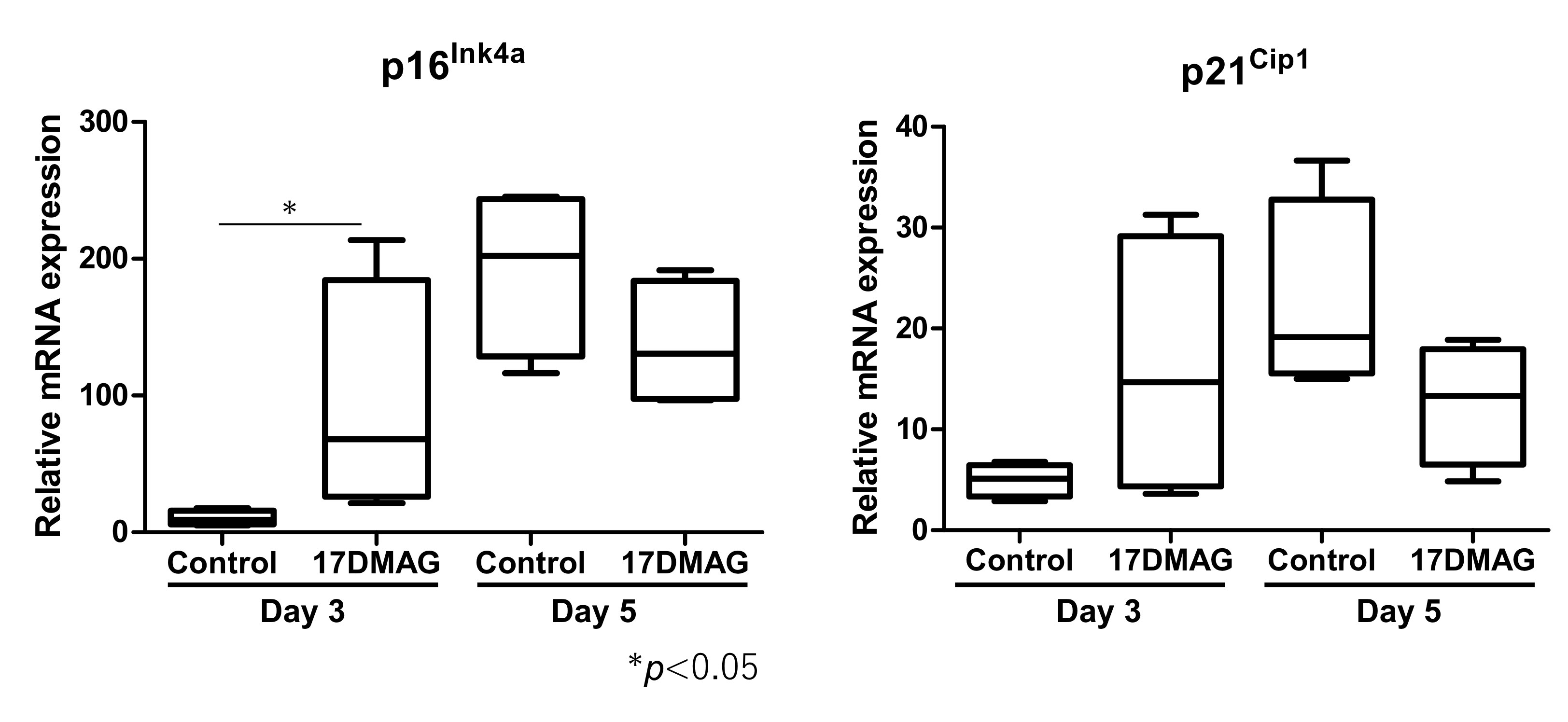Graft Perfusion with an Hsp90 Inhibitor Prolongs Graft Survival in Murine Heart Transplantation by Modulating Expression of Cyclin-Dependent Kinases and the Senolytic Effect
Department of Urology, Sapporo Medical University, Sapporo, Japan
Meeting: 2020 American Transplant Congress
Abstract number: C-366
Keywords: Graft survival, Heat shock proteins, Mice, Rejection
Session Information
Session Name: Poster Session C: Immunosuppression Preclinical Studies
Session Type: Poster Session
Date: Saturday, May 30, 2020
Session Time: 3:15pm-4:00pm
 Presentation Time: 3:30pm-4:00pm
Presentation Time: 3:30pm-4:00pm
Location: Virtual
*Purpose: We have previously demonstrated that administration of alvespimycin, a heat shock protein 90 (HSP90) inhibitor, prolongs the allograft survival in murine skin and heart transplantations. In addition, we have shown that preconditioning of the graft with alvespimycin suppresses the adaptive alloimmune response and prolongs the graft survival in murine heart transplantation (median allograft survivals were 14 and 7 days in the graft preconditioning group and control group, respectively [log-rank p <.001]). On the other hand, alvespimycin is recently also generating more attention as a senolytic agent. The purpose of this study was to investigate the senolytic effect of graft perfusion of alvespimycin in solid organ transplantation.
*Methods: Murine heterotopic heart transplantation (HTx) was performed using C57BL/6 (H-2b) and BALB/c (H-2d) mice as donors and recipients, respectively. In the graft preconditioning group, the graft was perfused in situ with 1 mL of a cold solution of alvespimycin, also known as 17DMAG, in which the agent was dissolved in heparinized Ringer’s lactate solution at a concentration of 250 µg/ml. The graft survivals of the graft preconditioning group and the control group were compared. In addition, cardiac allografts of the recipients were collected on days 3 and 5 for histopathological evaluation and quantitative RT-PCR.
*Results: In immunohistochemical study, there was no difference in macrophage infiltration between the two groups, whereas infiltration of neutrophils and dendritic cells in the graft was suppressed in the graft preconditioning group. Subsequently, expression of p16Ink4a mRNA and p21Cip1 mRNA in the graft was upregulated on day 3, then downregulated on day 5 in the graft preconditioning group as compared with the control group (Figure).
*Conclusions: The results of this study suggest that preconditioning of a graft with alvespimycin affects expression of cyclin-dependent kinases in the graft. In the early period, this treatment may modulate the immune response, after which the senolytic effect may contribute to prolongation of the graft survival in the late period. Preconditioning of grafts targeting HSP90 may be a promising strategy in solid organ transplantation.
To cite this abstract in AMA style:
Tanaka T, Maehana T, Masumori N. Graft Perfusion with an Hsp90 Inhibitor Prolongs Graft Survival in Murine Heart Transplantation by Modulating Expression of Cyclin-Dependent Kinases and the Senolytic Effect [abstract]. Am J Transplant. 2020; 20 (suppl 3). https://atcmeetingabstracts.com/abstract/graft-perfusion-with-an-hsp90-inhibitor-prolongs-graft-survival-in-murine-heart-transplantation-by-modulating-expression-of-cyclin-dependent-kinases-and-the-senolytic-effect/. Accessed February 24, 2026.« Back to 2020 American Transplant Congress

